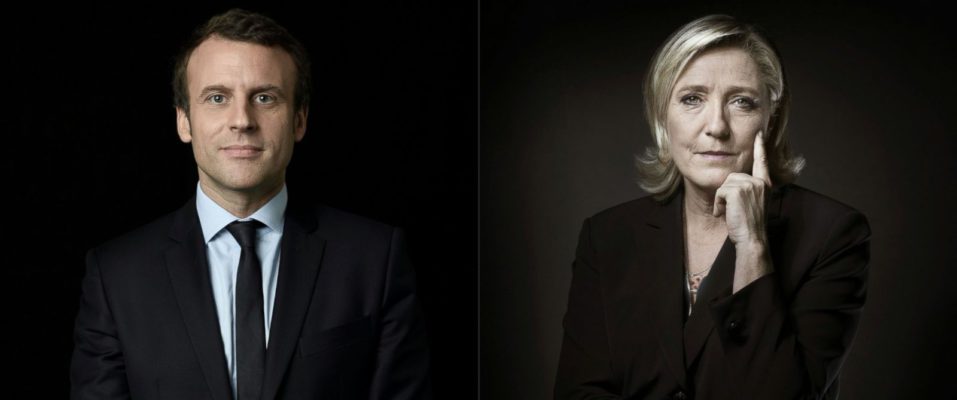Trump celebrates his first one hundred days in the Presidency of the United States, and Macron and Le Pen prepare to face each other in the second round of the French elections. These two scenarios look very different and, yet, have much in common. They must lead necessarily to a deep reflection on the future challenges of politics.
While Macron’s almost assured triumph in France gave new respite to those who worry about the emergence of nationalist, racist and xenophobic parties such as Marine Le Pen’s National Front (FN), these results, as well as those of a few months ago in The United States, and in other parts of the world, show a reality that cannot be ignored: the great attraction of everything having an anti-establishment perfume, which, for a large part of the electorate, translates into anti-politics.
If Macron had not quit the Socialist Party —juggling, to make the French forget his past as Hollande’s economy minister— he would have probably never reached the second round, much less think of the French Presidency, a goal that seems certain. Having intuited the hole into which Hollande was driving his party, Macron, with great political foresight, launched a new movement that he called En Marche! From that moment on, he began his ascending career towards the Elysium.
On the other hand, one cannot downplay the victory of Marine Le Pen, who managed to reach the ballots thanks to a populist speech that promises much more than it could give and is, as always, nourished by people’s anxieties, fears and moodiness.
The result achieved by Macron and Le Pen is that «Gaullism» and «socialism» were left out of the game for the first time in a presidential election in France.
These are small alarm bells that should force traditional parties to look into the mirror and ask themselves, in all honesty, where did they go wrong, why did people lose confidence in their actions, what are the strategy and communication changes they must implement to prevent each election from becoming a Russian roulette, and the future of a country depend on the greater or lesser preparation and honesty of the outsider of the moment —and not only the future of that country, but that of the world, since, no matter how much it may hurt nationalists, humanity is inevitably interconnected.
In France, the United States and the United Kingdom the same pattern is repeated. Large cities vote in a way diametrically opposed to that of rural areas, and the same difference is found among people with different degrees of education. But it would be very reductive to stay within that analysis. The truth is that the discomfort towards politics is very deep, because there are increasingly more people tired of corruption episodes, power abuses, of living in unstable situations, precarious jobs, and dramatically evident divisions within the social fabric. Politics has stopped talking to people, listening to people; it has lost its capacity for representation, because it has lost peoples’ respect. It is a much more serious problem than one might suppose. The word «politics» has become an abstract and negative concept. The ability to distinguish between politics as a concept and corrupt or inept politicians —with their first and last names— is diluted. The «apparatus» is perceived as something that sucks peoples’ blood instead of being the structure that guarantees the fair development of a society. Before the control of the situation is completely lost, serious, honest politicians must act to change those perceptions; it is they who have to promote profound changes, who must be able and communicate them, and to demonstrate them with actions.
In Latin America, where it emerged as a protest against abuses and corruption of previous governments, we have already seen populism’s results. The remedy has been far worse than the disease: corruption has grown and poverty has multiplied.
Politics, as well as medicine or engineering, cannot be invented overnight. When power falls into the wrong hands, which are unable to control it, much less govern a country, the whole humanity is in danger. If the President of a very influential nation can bring the world to the brink of war, that of a smaller and seemingly less important nation can create destabilizing waves in the world economy and in societies.
Politics cannot be improvisation. If, however, politicians won’t be able to recover their vocation of service, and gain the trust and respect of their constituents, there will be more space for incompetence disguised as good words.


